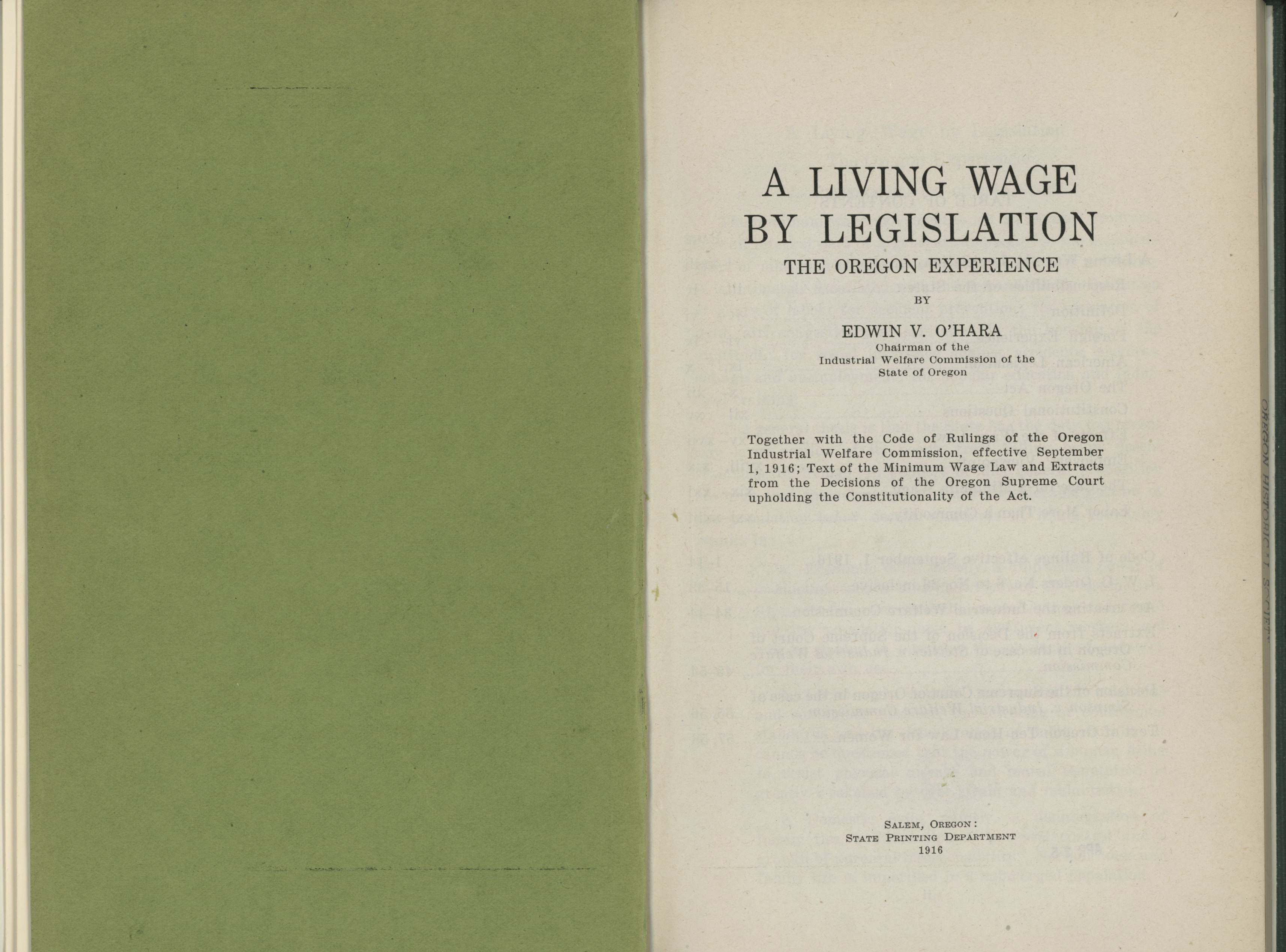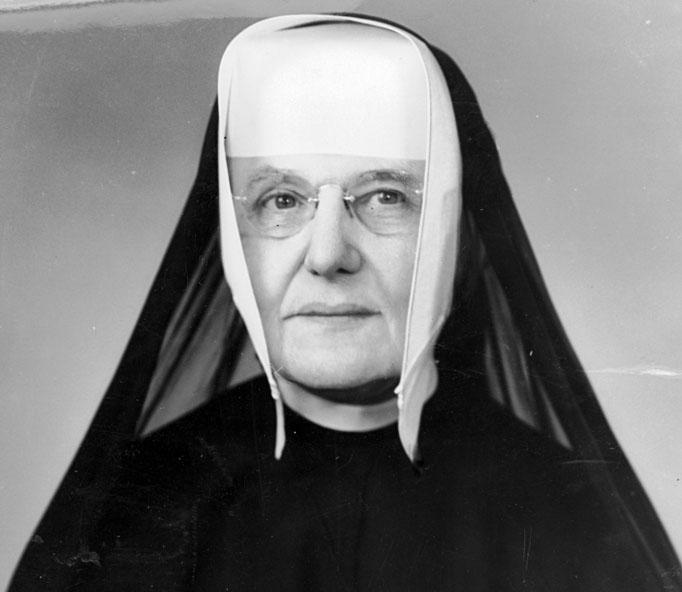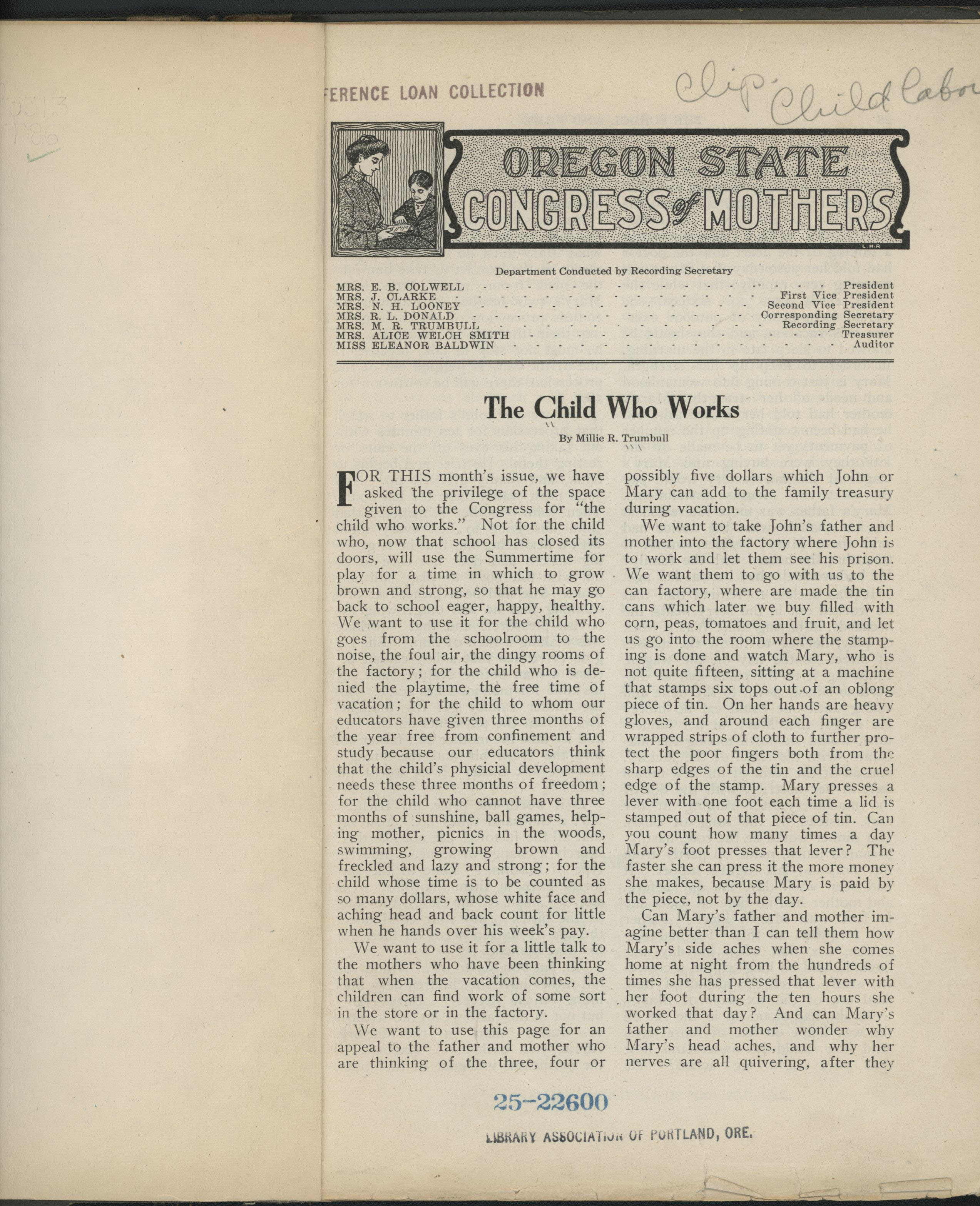In the spring of 1913, the Oregon legislature created the first compulsory minimum wage law in the nation and its governing agency, the Industrial Welfare Commission. The law legitimized government’s right to regulate women and minor worker's wages and was copied across the country. The Fair Labor and Standards Act of 1938, which created a national minimum wage, began with Oregon’s minimum wage law twenty-five years earlier.
The nation’s increasingly industrialized workplaces had spurred conflict between workers and industrialists; and many politicians, civic leaders, intellectuals, and clergy sought social reforms to limit industrial strife, mitigate corporate behavior, and improve working conditions. Progressives believed that legislative remedies not only benefited the parties involved but also served the broader public interest, and Oregon’s system of direct democracy made the state a leader in labor reform legislation.
In 1912, the Consumer's League of Oregon, a branch of the National Consumers’ League, conducted a statewide survey of wages and working conditions of women and minors. The Report of the Social Survey Committee of the Consumers’ League of Oregon on the Wages, Hours, and Conditions of Work and Cost and Standard Living of Women Wage Earners in Oregon provided the information that Oregon reformers used to lobby for the minimum wage bill. The bill, designed to “protect the lives and health and morals of women and minor workers,” received unanimous support in the Senate, and the House passed it with only three nay votes.
Charged with representing the interests of the public, employees, and employers, the Industrial Welfare Commission was comprised of three unsalaried commissioners appointed by the governor to staggered, three-year terms. The commission was allotted one paid staff, an executive secretary, to coordinate its administrative functions and spearhead its investigative duties. Reverend E.V. O’Hara was chair of the first commission, and Caroline Gleason (later Sister Miriam Theresa) was its executive secretary. Child labor advocate Millie R. Trumbull succeeded Gleason as secretary in 1917.
Working in tandem with the Oregon Bureau of Labor and the Board of Inspection of Child Labor, the Industrial Welfare Commission began implementing the state’s minimum wage law in June 1913. The commission was empowered to set standards for hours of employment, conditions of labor, and minimum wage rates for women and minor workers. It had the authority to investigate company books, payrolls, and work sites to determine wages and mitigate working conditions, and it could subpoena and compel testimony from employers and employees.
The commission was required to hold public conferences and take testimony from all interested parties before setting wage rates. Wage rates, hours, and conditions of work were issued according to industries, and its decisions, or “orders,” were posted at work places. Compliance with the orders was mandatory, and violators could be fined from $25 to $100 and imprisoned in the county jail for up to three months.
Some employers and employees resented the state’s intervention into the workplace. In October 1913, Frank Stettler, a paper box manufacturer, and his employee Elmira Simpson filed lawsuits against the Industrial Welfare Commission on grounds that it was illegally assuming legislative authority and that it infringed on Simpson’s constitutional right to “freedom of contract.” Oregon courts upheld the minimum wage law as constitutional, and Stettler appealed to the U.S. Supreme Court. The legal defense team for the National Consumers' League defended Oregon’s minimum wage law before the court.
In 1917, the Supreme Court issued a split decision in Stettler v. Oregon, upholding the constitutionality of the law and the right of the Industrial Welfare Commission to implement and enforce it. That year, the legislature merged the budgets and staff of the commission and the Board of Inspection of Child Labor. In 1931, the State Welfare Commission and a three-member board assumed the duties of those agencies.
-
![]()
A Living Wage by Legislation: An Oregon Experience, by Edwin O'Hara, 1916.
Courtesy Oregon Hist. Soc. Research Lib., 331.2 Or31 1916
-
![]()
Caroline Gleason (Sister Miriam Teresa), 1956..
Oreg. Hist. Soc. Research Lib., bb002700
Related Entries
-
![Caroline Gleason (1886-1962)]()
Caroline Gleason (1886-1962)
Caroline J. Gleason—Roman Catholic nun, social reformer, and educator—h…
-
![Fr. Edwin O'Hara (1881-1956)]()
Fr. Edwin O'Hara (1881-1956)
Fr. Edwin O'Hara—Roman Catholic priest, educator, social reformer, and …
-
![Millie R. Trumbull (1866-1940)]()
Millie R. Trumbull (1866-1940)
Millie Reid Trumbull was a forceful advocate for women and children in …
Related Historical Records
Map This on the Oregon History WayFinder
The Oregon History Wayfinder is an interactive map that identifies significant places, people, and events in Oregon history.
Further Reading
Dilg, Janice. “’For Working Women in Oregon’: Caroline Gleason/Sister Miriam Theresa and Oregon’s Minimum Wage Law.” Oregon Historical Quarterly 110:1 (Spring 2009), 96-129.
Woloch, Nancy. Muller v. Oregon: A Brief History with Documents. Boston: Bedford Books of St. Martin’s Press, 1996.



